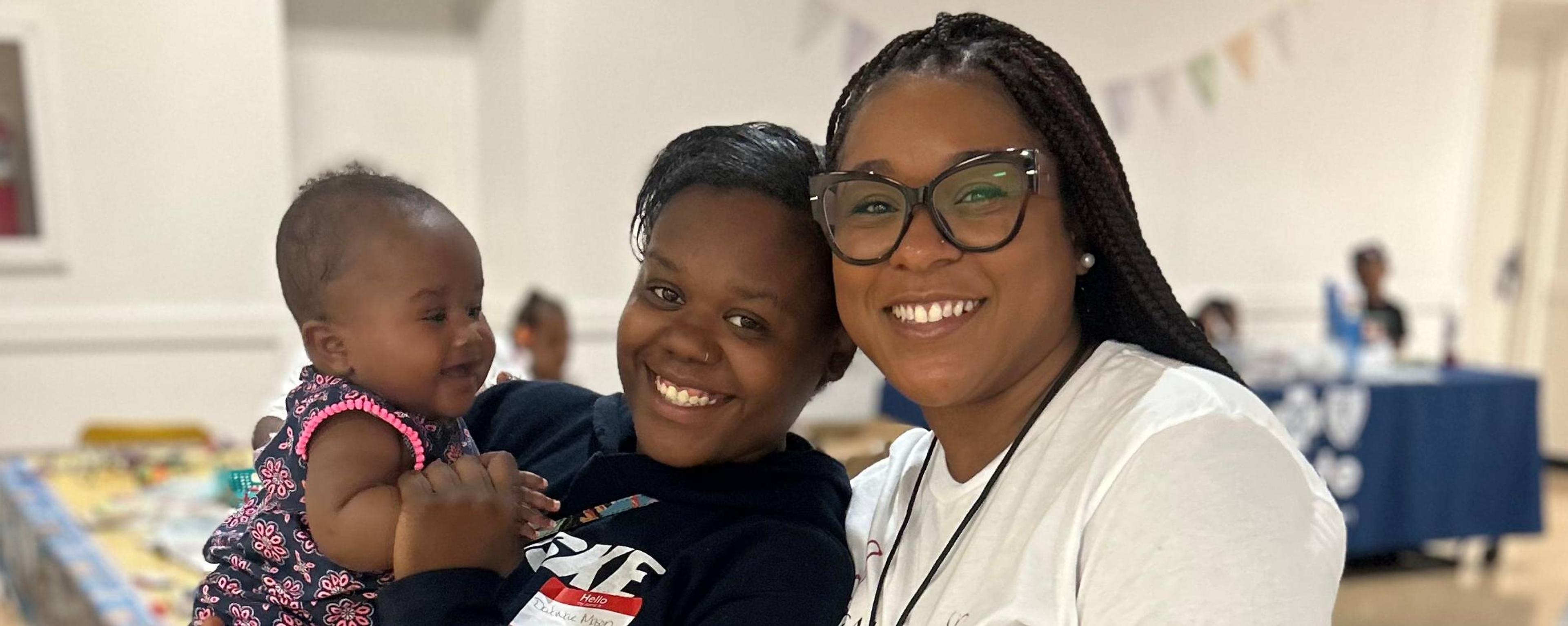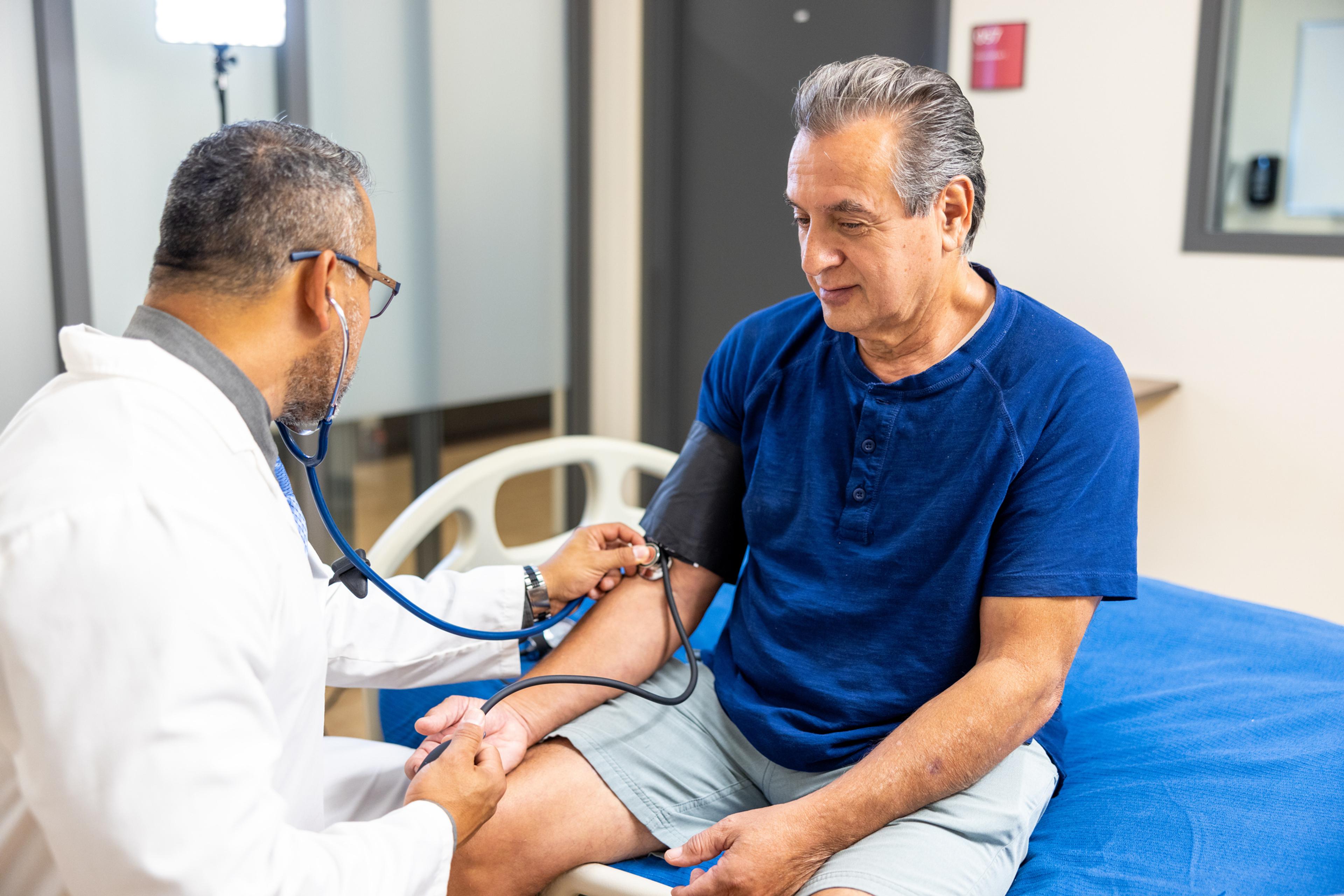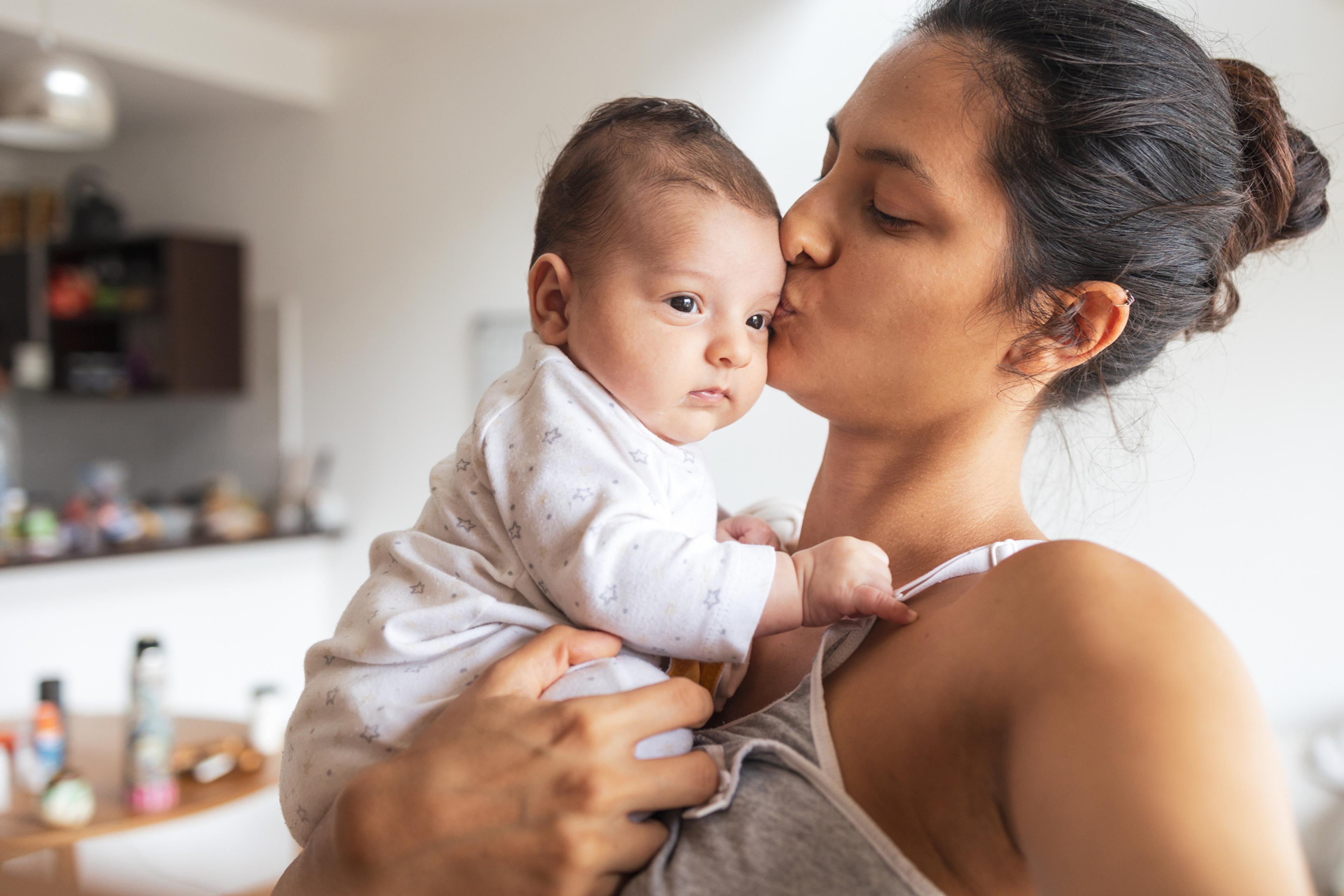Union, Michigan Woman Details Her Stage IV Colorectal Cancer Diagnosis at Age 28
Jake Newby
| 7 min read
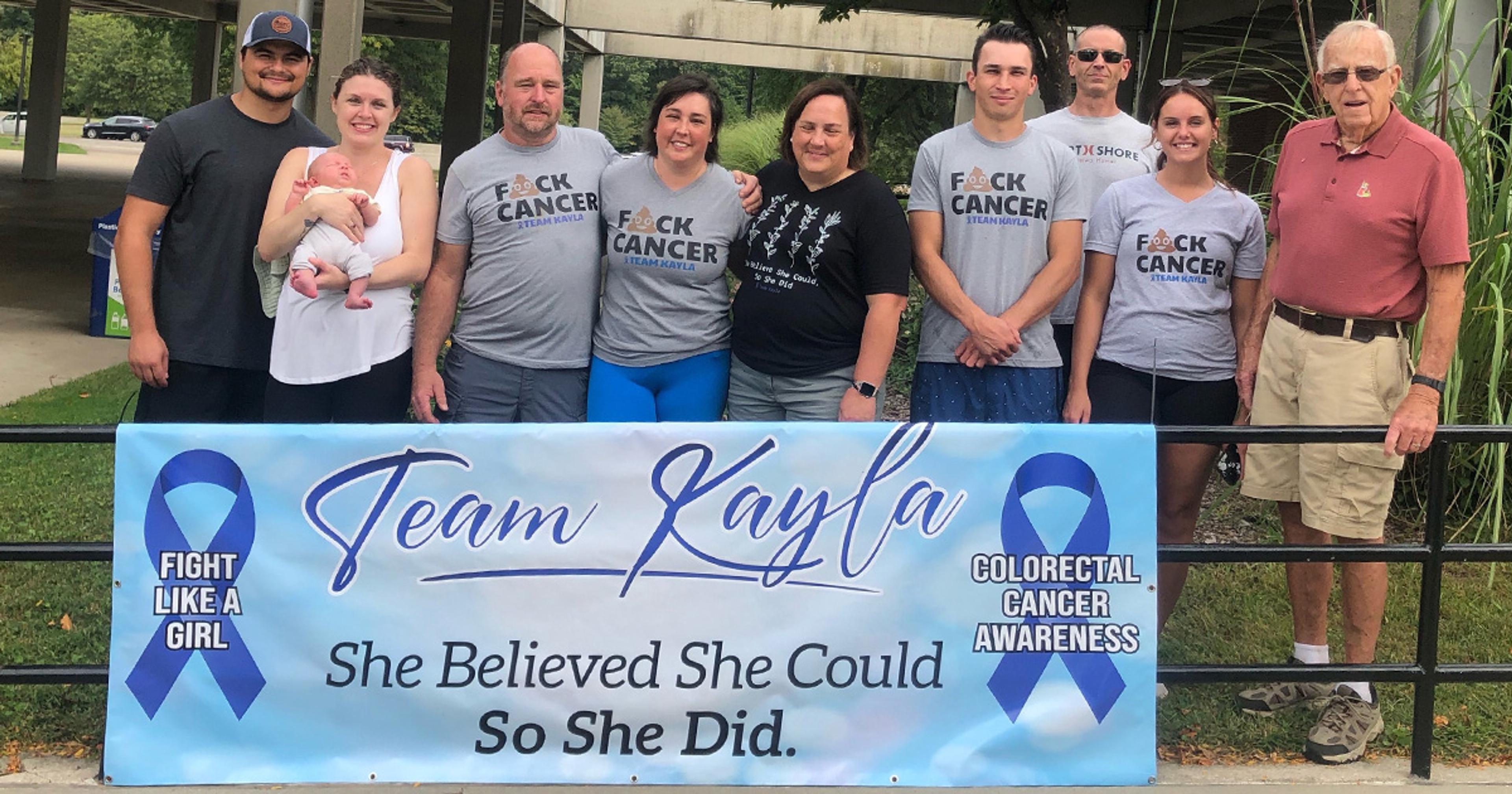
No 28-year-old should have to endure stage IV colorectal cancer. But Union, Michigan’s Kayla Campbell doesn’t spend a lot of time harping on things she can’t control.
What she can and does control is her outlook on life, and how much time and effort she puts into self-advocacy.
“Some of the best advice I’ve gotten is to advocate myself and to know what my genetic markers are,” said Campbell, a Blue Cross Blue Shield of Michigan member. “To put as much research into my cancer as I can, so when I sit down and talk to my doctors, we can have a conversation about treatment options and make sure we do the best we can do.”
Campbell’s long, arduous bout with cancer – which to date has included 60 chemotherapy sessions – began in January 2019. She was exercising at the downtown Detroit Pure Barre when she felt an excruciating pain in her right abdomen.
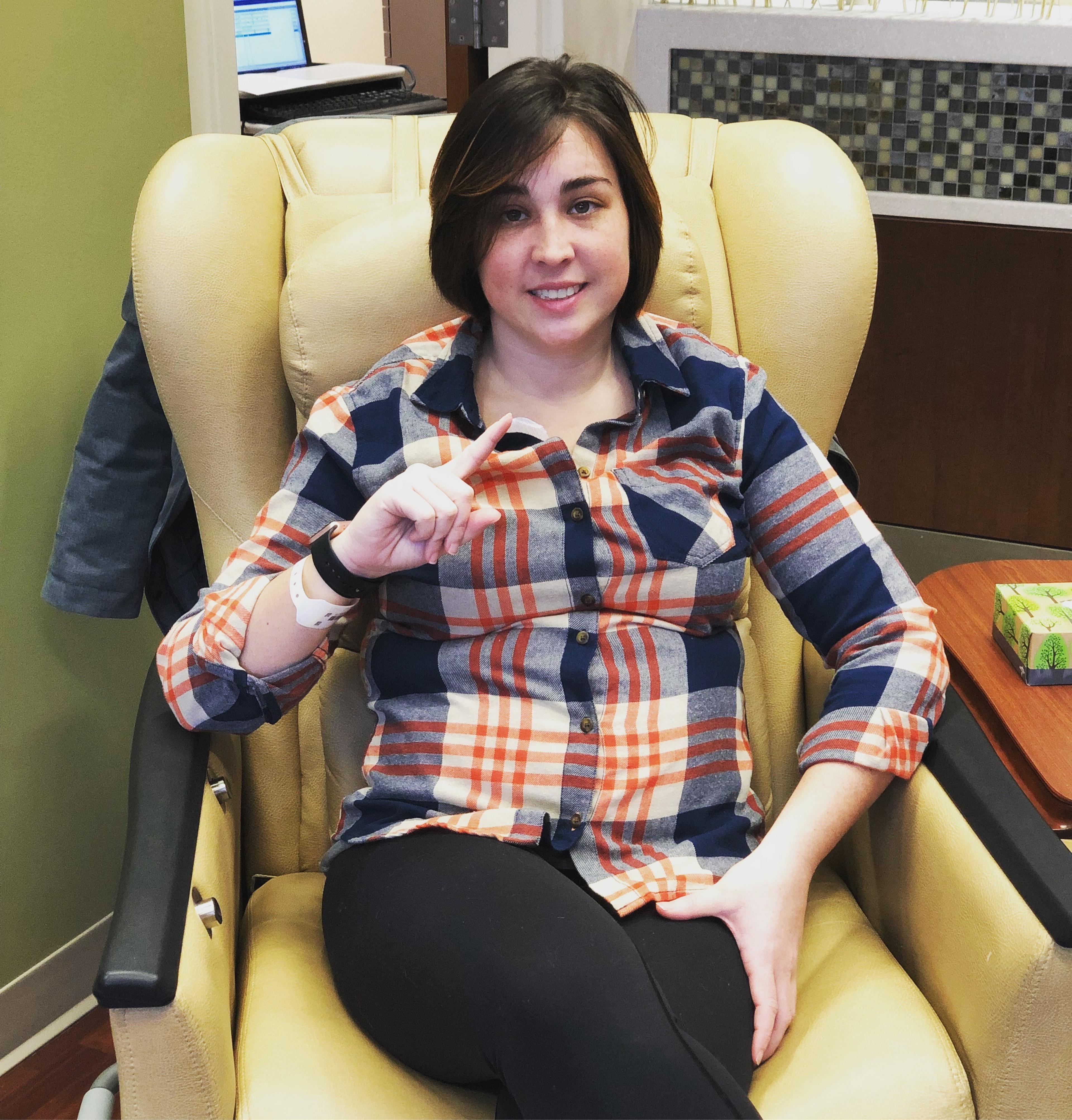
“I couldn’t lift my leg up; I couldn’t do a sit-up,” Campbell said. “I just sat there until the end of class.”
She made the decision to head to the emergency room at Detroit Medical Center, where a large ovarian mass was found during an ultrasound. Within a week she underwent surgery to remove an ovary but not the mass, since doctors were unsure how much of her colon or rectum were affected and whether parts of those organs had to be removed. A follow-up PET scan showed a liver metastasis, which is a cancerous tumor that spreads to the liver after starting in another place in the body.
“The mass that was in my colon was large enough that they didn’t know how it didn’t perforate my colon,” Campbell said.
After recovering from surgery, Campbell barely had time to process her stage IV cancer diagnosis, and why it had happened to her despite no prominent symptoms or family history. She received genetic testing and had no predisposed genetic markers. Her grandmother had breast cancer in her 70s, but that was it.
“We don’t know why I have cancer,” she said.
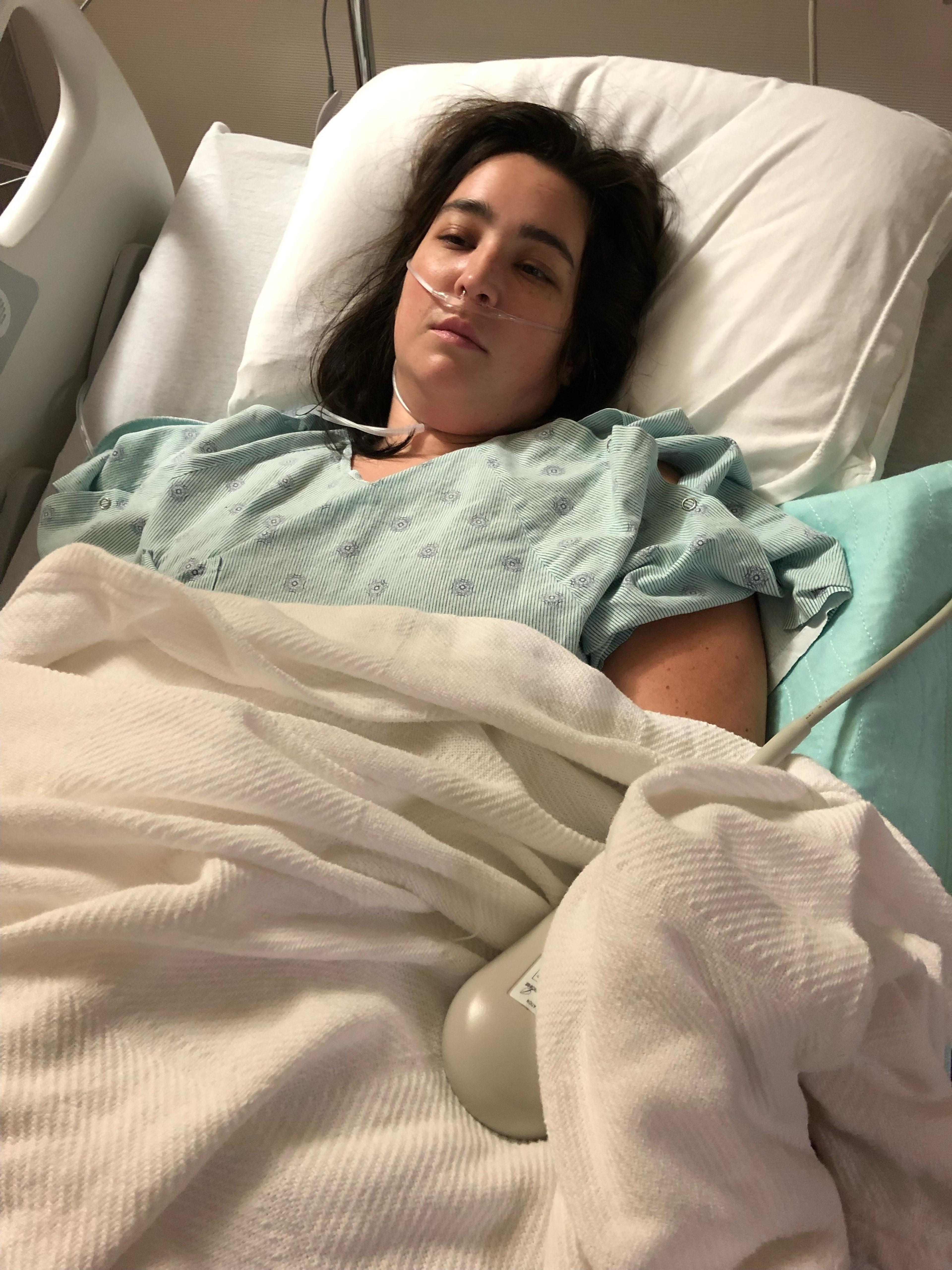
In hindsight, Campbell said her symptoms were there, but they were subtle. She felt fatigued more often than she ever had in the year-and-a-half leading up to her cancer diagnosis. She said her bowel movements changed as well during this time, including bouts of extreme diarrhea, constipation, and pencil-thin stool by the time she had her first surgery.
“I was so sick going into the surgery that it was actually a relief to get a diagnosis,” Campbell said. “I know that sounds crazy, that a stage IV cancer diagnosis could be a relief, but I was so sick. It was a relief to know this wasn’t all in my head. Obviously, it was a blow, but there was no time to even think about it. It was just, ‘Go.’ Getting my eggs harvested, figuring out if I’m going to stay in Detroit where I lived at that time. Getting a liver biopsy because the cancer spread to my liver. There were so many moving parts, it was like, ‘OK, tackle one thing then move on to the next.’ There was no time to sit down and like, feel it.”
Campbell responded well to initial rounds of aggressive treatment and several complex procedures. Between August 2019 and late 2020, she went into remission twice and watched the cancer return twice.
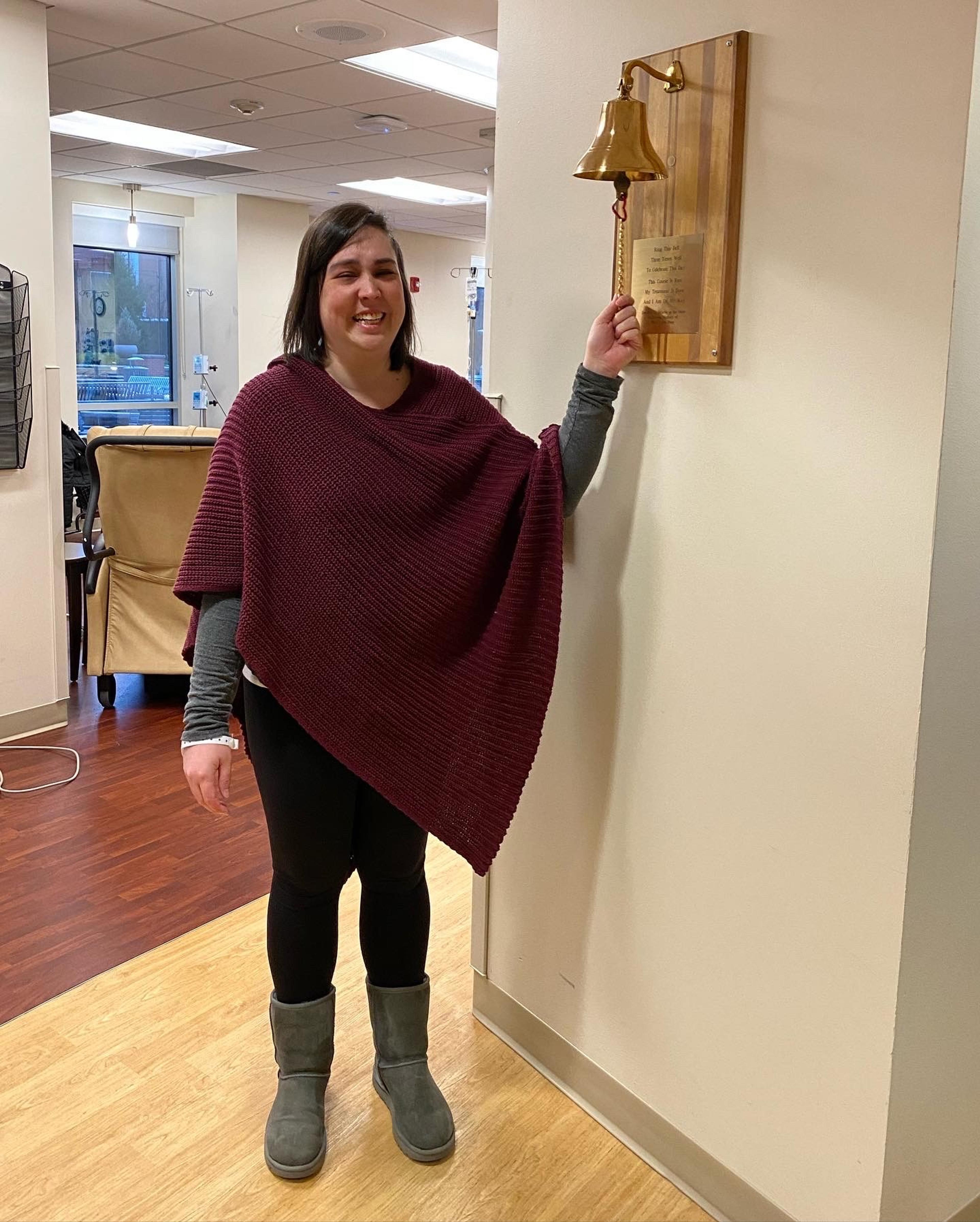
“In January of 2021 I had my second recurrence and this time it was in three different spots in my abdomen,” Campbell said. “It was inoperable at that point, and still inoperable today.”
She said her focus is on her treatment. She’s invested in her health, making sure she’s up to date on treatment resources.
“The cancer world is ever evolving,” she said. “As far as clinical trials and all the different options, I consider myself treatable. Treatments are ever evolving. We’re seeing breakthroughs daily with cancer. So, seeing that stuff come through whether it’s with my direct cancer or a different cancer pushes me or keeps me going because it means something is on the horizon for me.
‘Share medical history:’ The importance of cancer screening
“I think it’s important that we talk about family history of cancer and know more than just baseline facts,” Campbell said. “Like, ‘Oh grandma had cancer,’ but we may not know what kind of cancer or what the screening for that cancer should be. It’s not a fun conversation to have, but when you’re sitting around the Thanksgiving table, the dinner table, and all the family’s there, go around and share medical history, because it’s very important that we know what our underlying conditions are.”
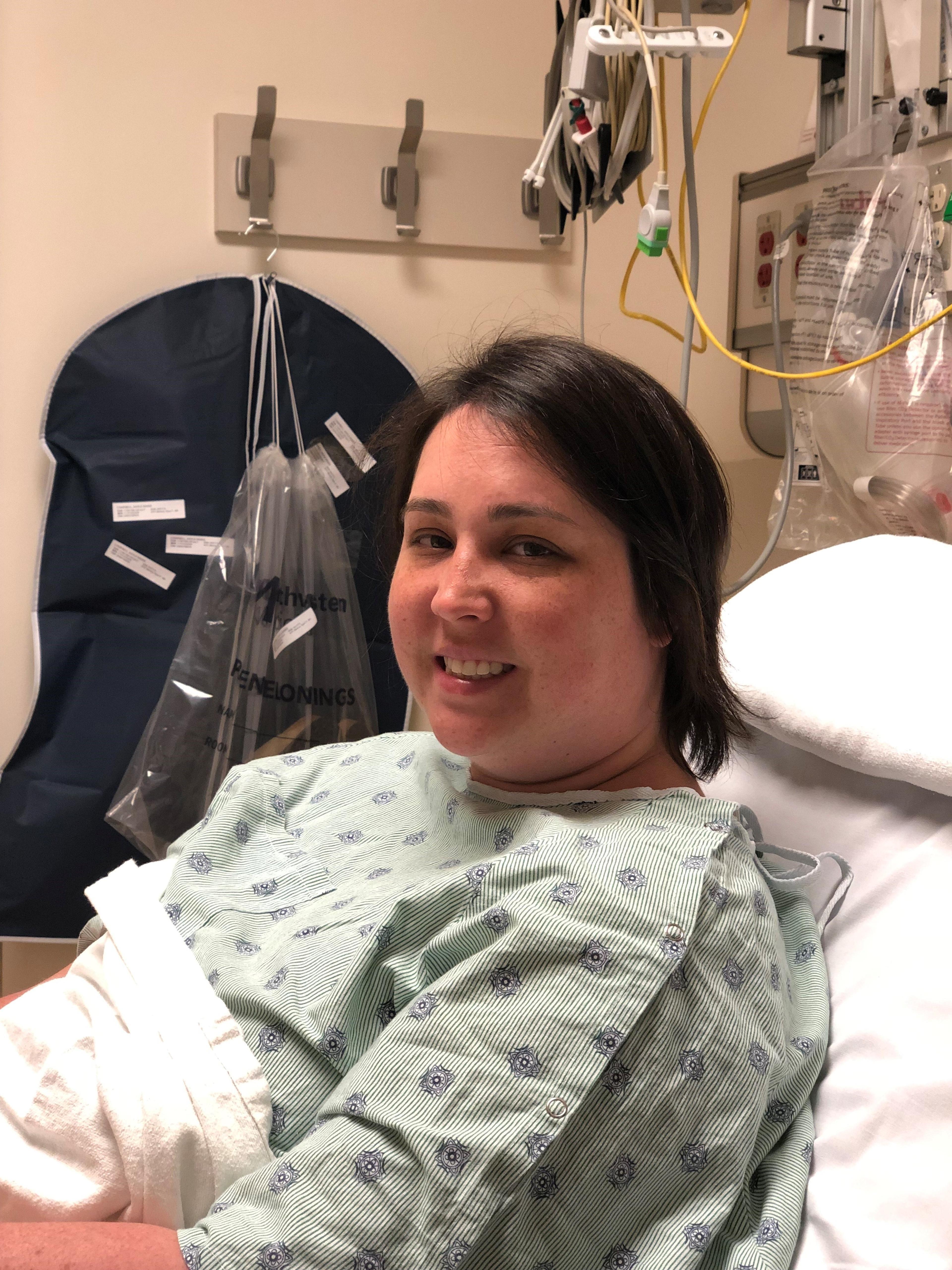
Campbell added that as a 28-year-old who was diagnosed with cancer, her brother was recommended to have a colonoscopy at 23.
“Knowing when you need to be screened is super important,” Campbell added.
‘A new way of life:’ Mentally coping with cancer in her 20s and 30s and finding distractions
Campbell’s rock during her unthinkable journey has been her parents for helping her stay even keeled.
“I’ve gotten support from my family. My mom is a nurse,” Campbell said, her voice cracking a bit with emotion. “So that’s been super helpful. But it just becomes a new way of life. We know that I have treatment every other week, or we hope we have treatment every other week. There’s not been too many lows. Treatment for me has been super tolerable, I’ve worked mostly full time during my entire diagnosis. For me, that’s the need. I have to have the distractions, I have to try and have a normal life,” she added.
She said her employers at Rocket Mortgage in Detroit have been supportive, and more than accommodating.
One of those distractions involved buying a house in Union City, a tiny village about 10 miles northwest of Coldwater. Remodeling her house and giving it the TLC it required has kept her busy.
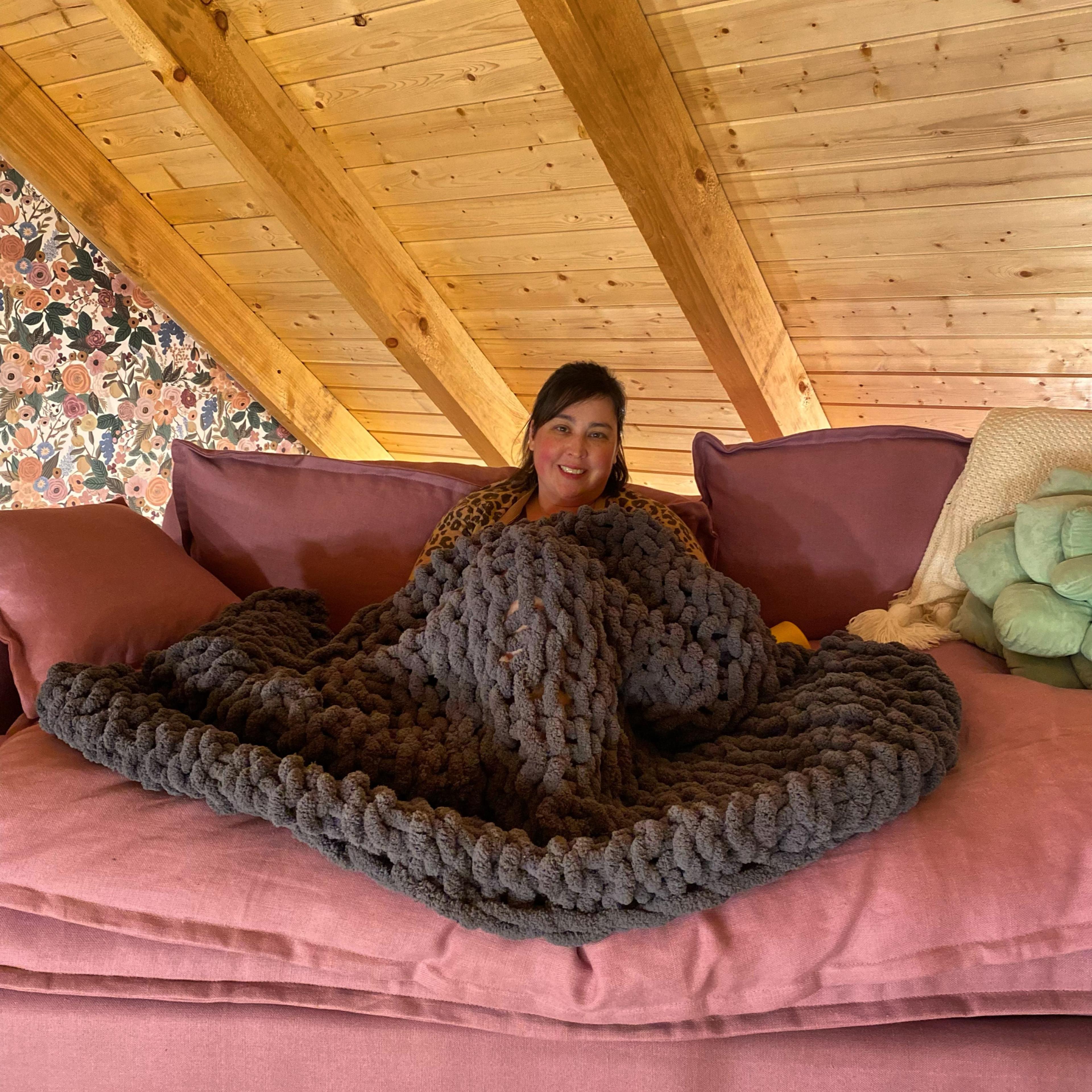
“I bought a house that was incomplete. We took the roof off and everything,” she said. “For me that was a big distraction, and it kept my mind off what else was going on with me. It gave me stuff to do between treatments, and shop for home stuff.
It’s rare for Campbell, now 32, to interact with anyone in her daily life who has traveled a similar road to hers, especially now living in a community of less than 1,800 people. But she’s found invaluable support and advice online.
“Meeting people through social media has been huge, to know other people are going through what I’m going through,” she said. “Talking to moms with kids in their early 30s and people who are dealing with stage III or stage IV cancer. Something that kind of bonds us is, by the time we’re experiencing side effects, (the cancer) has already progressed to late stage. So, moms and dads in their early 30s, late 20s, it’s so hard to be a part of that community because you lose them. But at the same time, they provide a lot of information.”
Spend time surfing Campbell’s Instagram page and you’ll find comment sections bursting with well wishes and supportive words. There is a general awe of Campbell’s strength and attitude underneath every photo she posts.
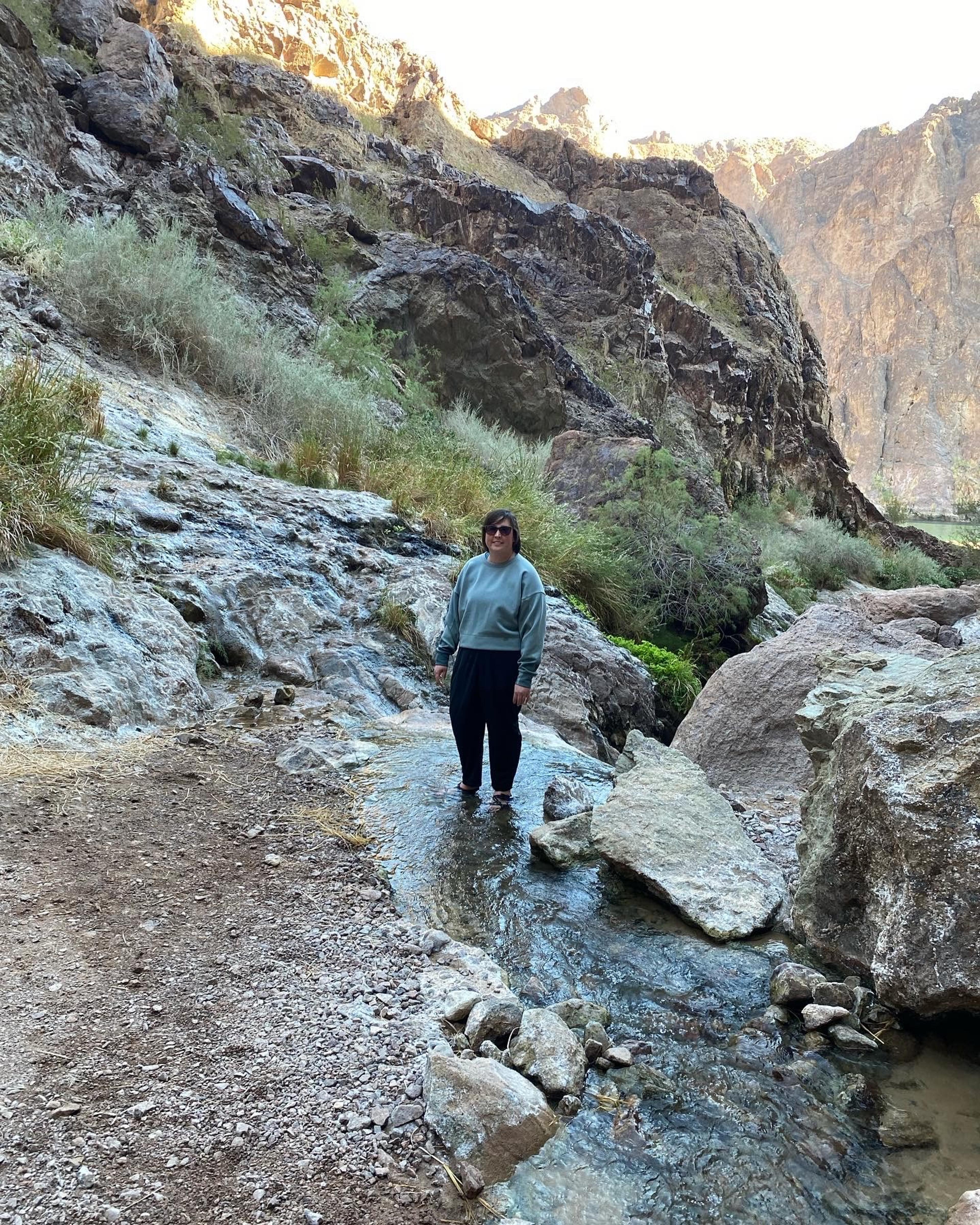
“I think it goes back to my personality before all this, I’ve thought of myself as a positive person,” she said. “I can tell you which treatments I went into with a negative outlook and which ones I went into with a positive outlook. Not every day is going to be easy. I’ve yelled and screamed and cried all in one day, but at the end of the day, you are blessed to be here today.”
Campbell – who successfully ran the Detroit Free Press half-marathon less than 14 months before her initial diagnosis – aspires to do so again in the future. She also plans to continue advocating for herself, take part in colorectal cancer outreach, and maybe even write a book one day.
“Right away, I kind of created a bucket list and knocked out a lot of goals, like traveling more,” she said, “But it really just comes back to those clichés about enjoying life and not taking it for granted.”
Photo credit: Kayla Campbell

